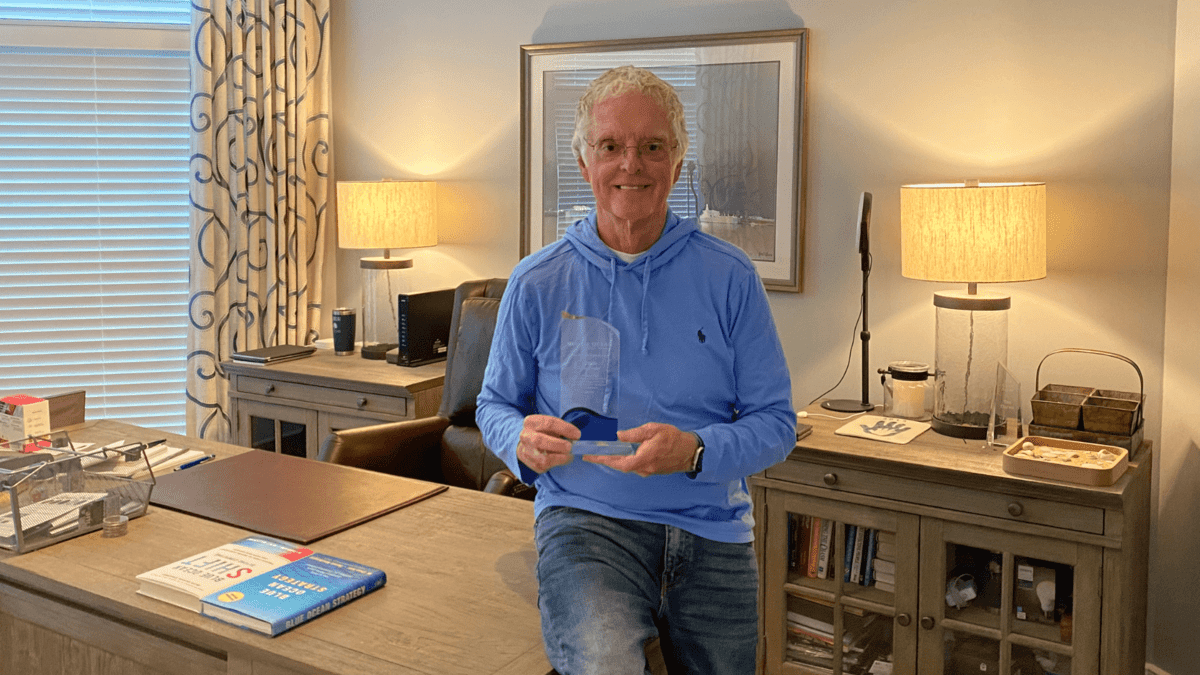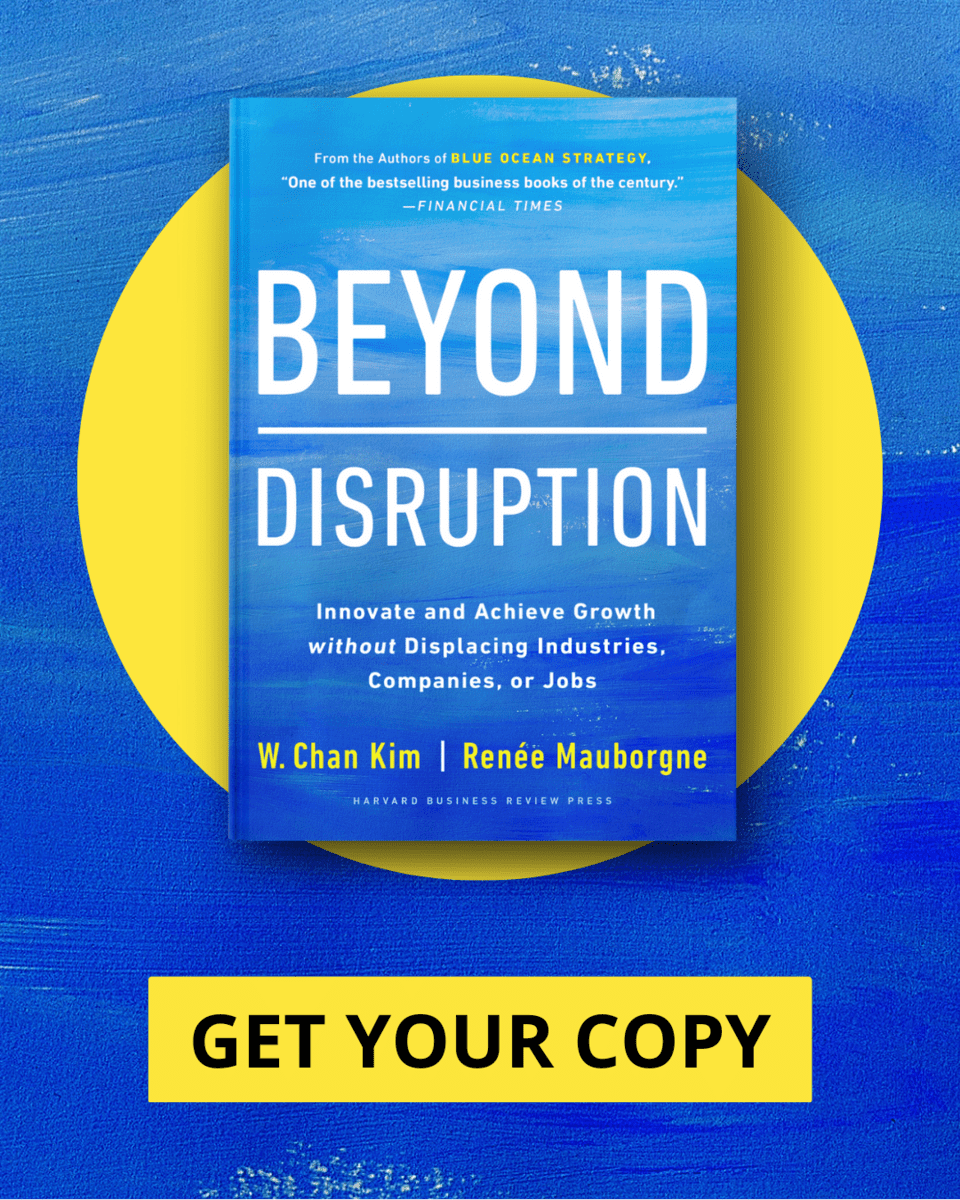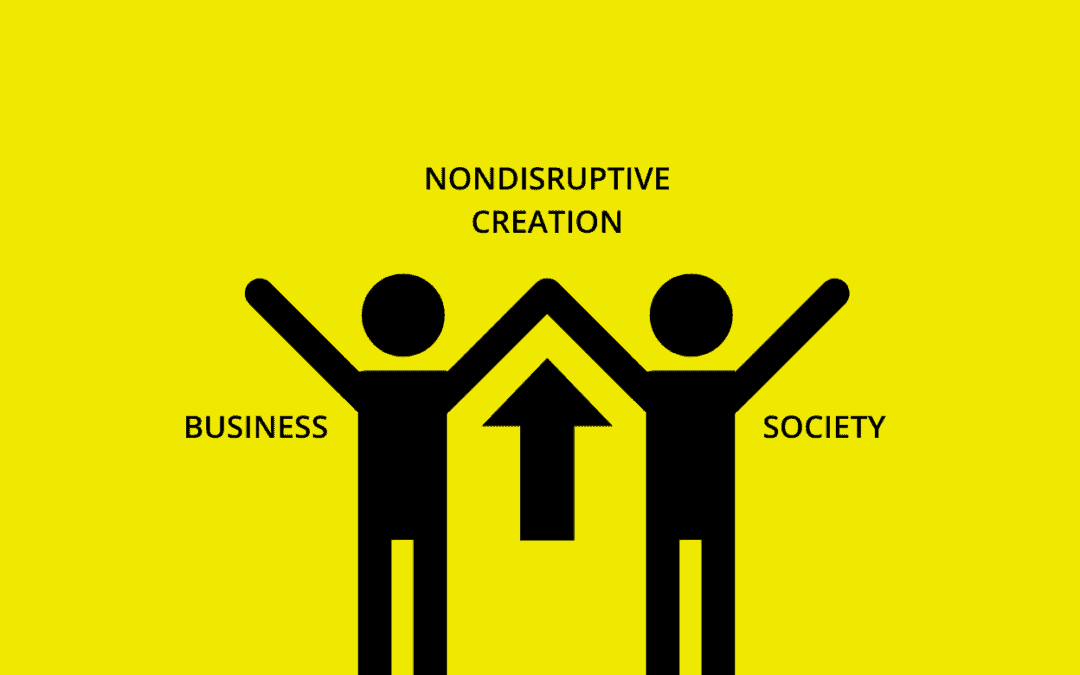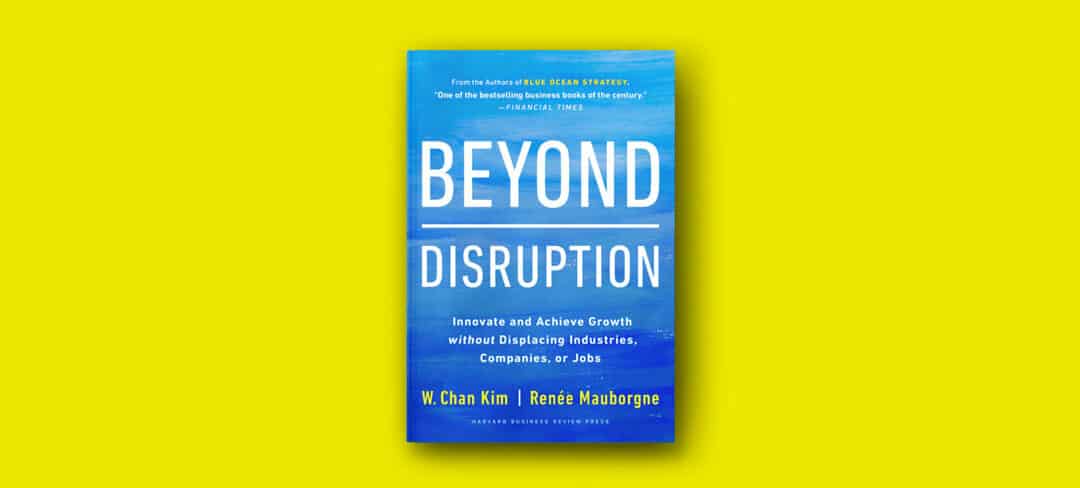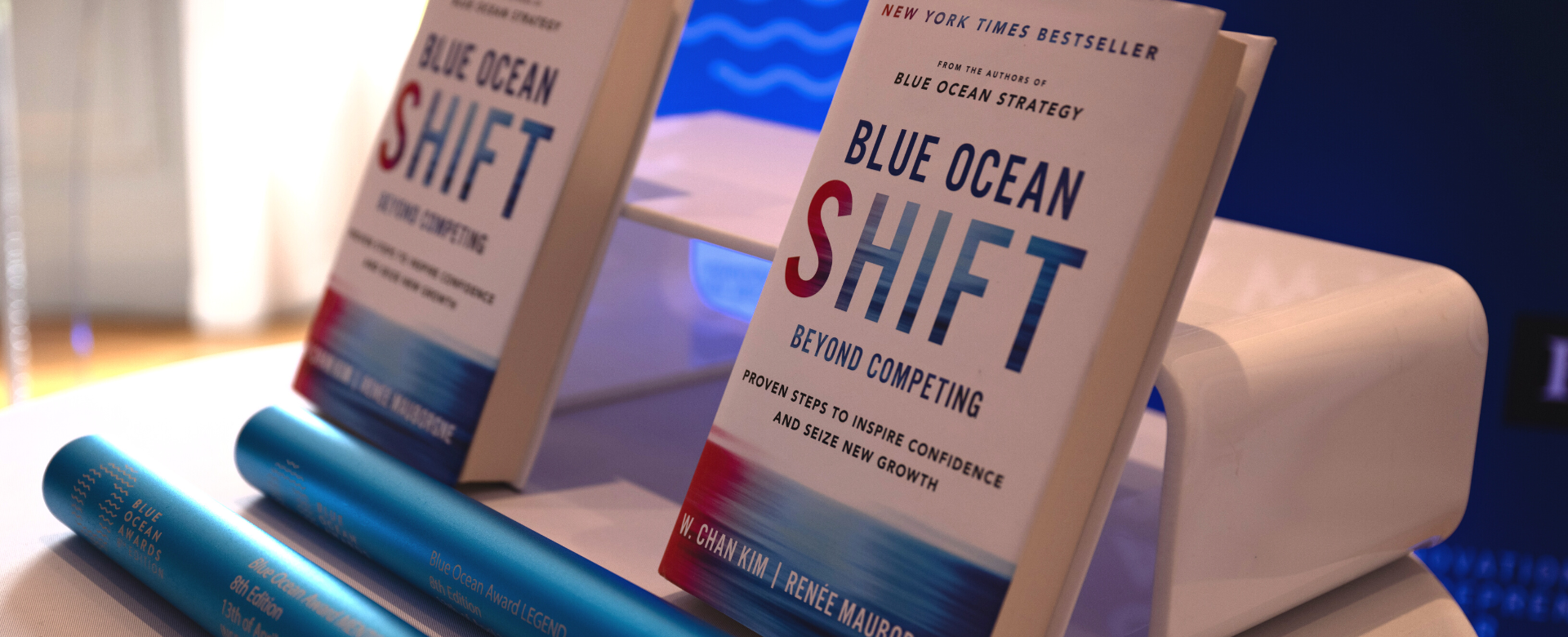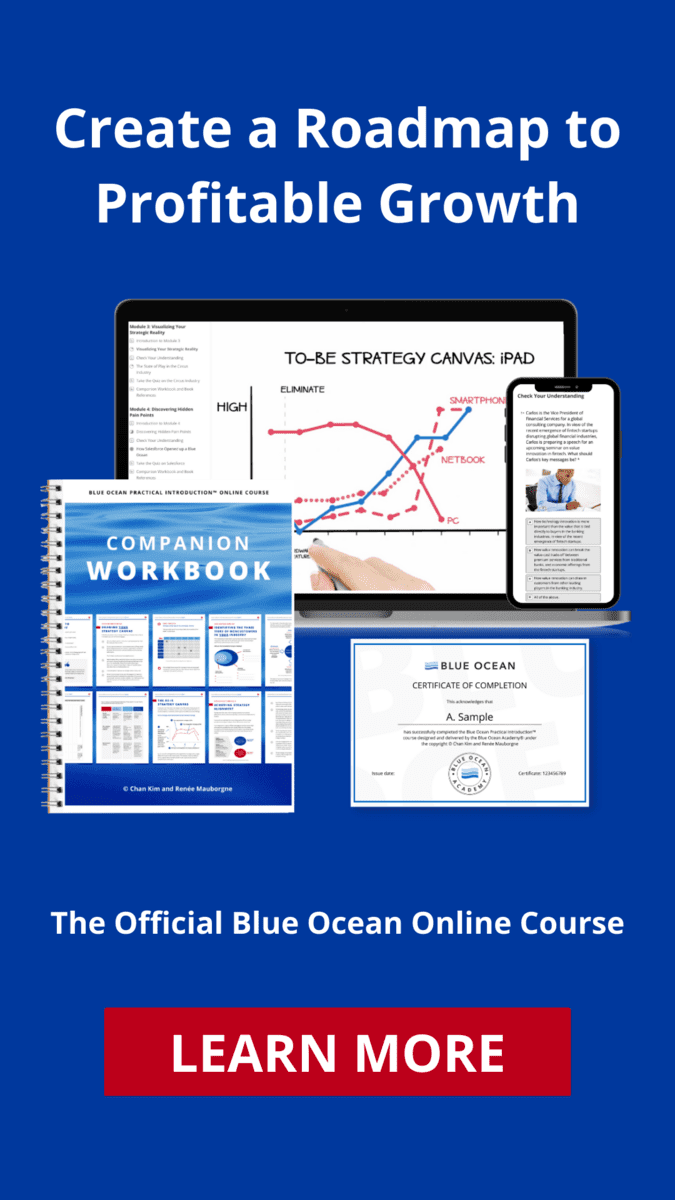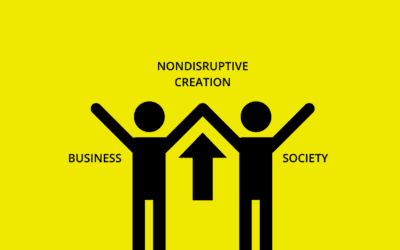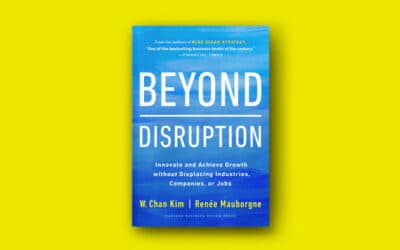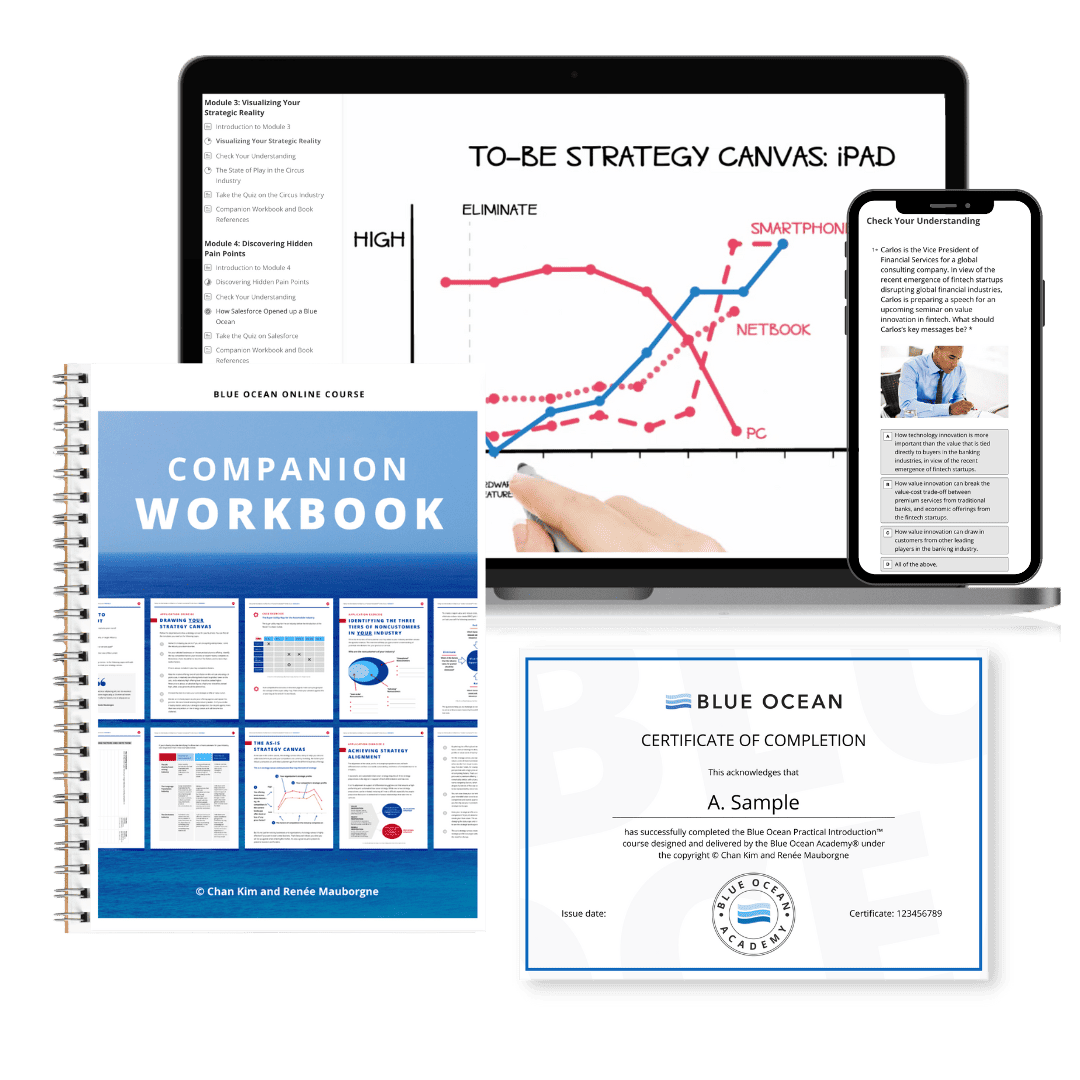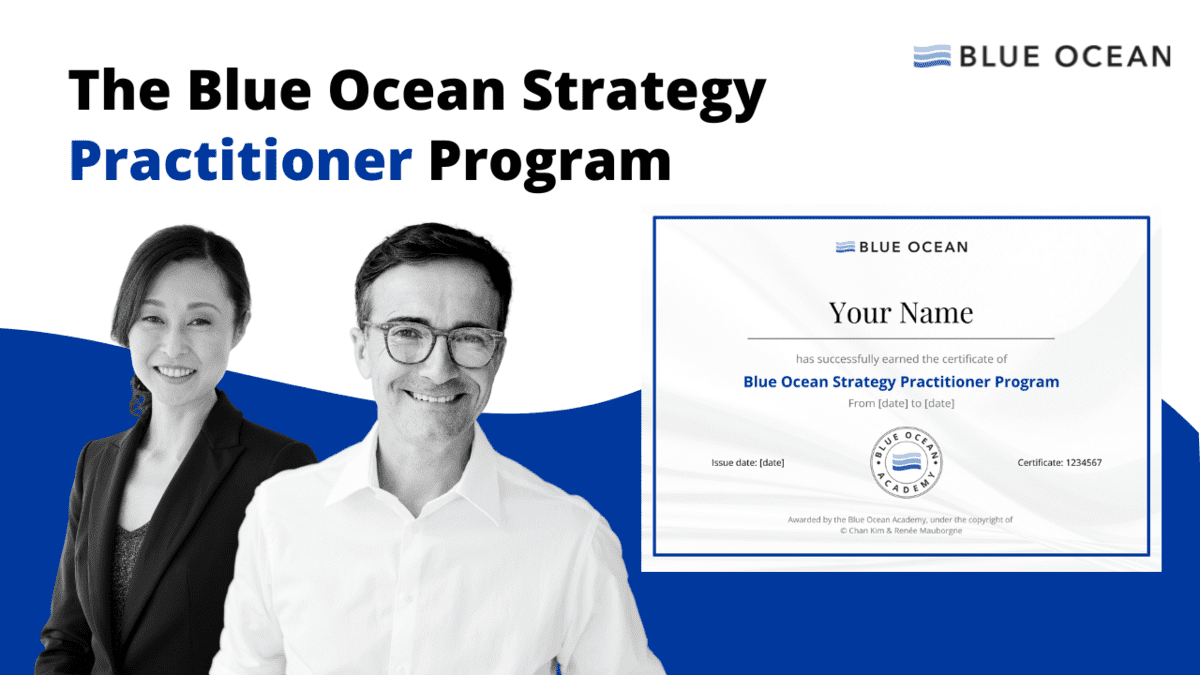Five years ago, in 2017, the idea for the Global Blue Ocean Leadership Awards was born. The aim was to create an award given out every five years that would recognize and shine a light on individuals who have led and fostered the creation of blue oceans that have made a meaningful difference and could offer hope and inspiration to the world.
2022 marks the second Global Blue Ocean Leadership Awards. The winners exemplify individuals and organizations going beyond competing in existing markets and creating wide-open blue oceans of new market space, inspiring confidence, and seizing new growth.
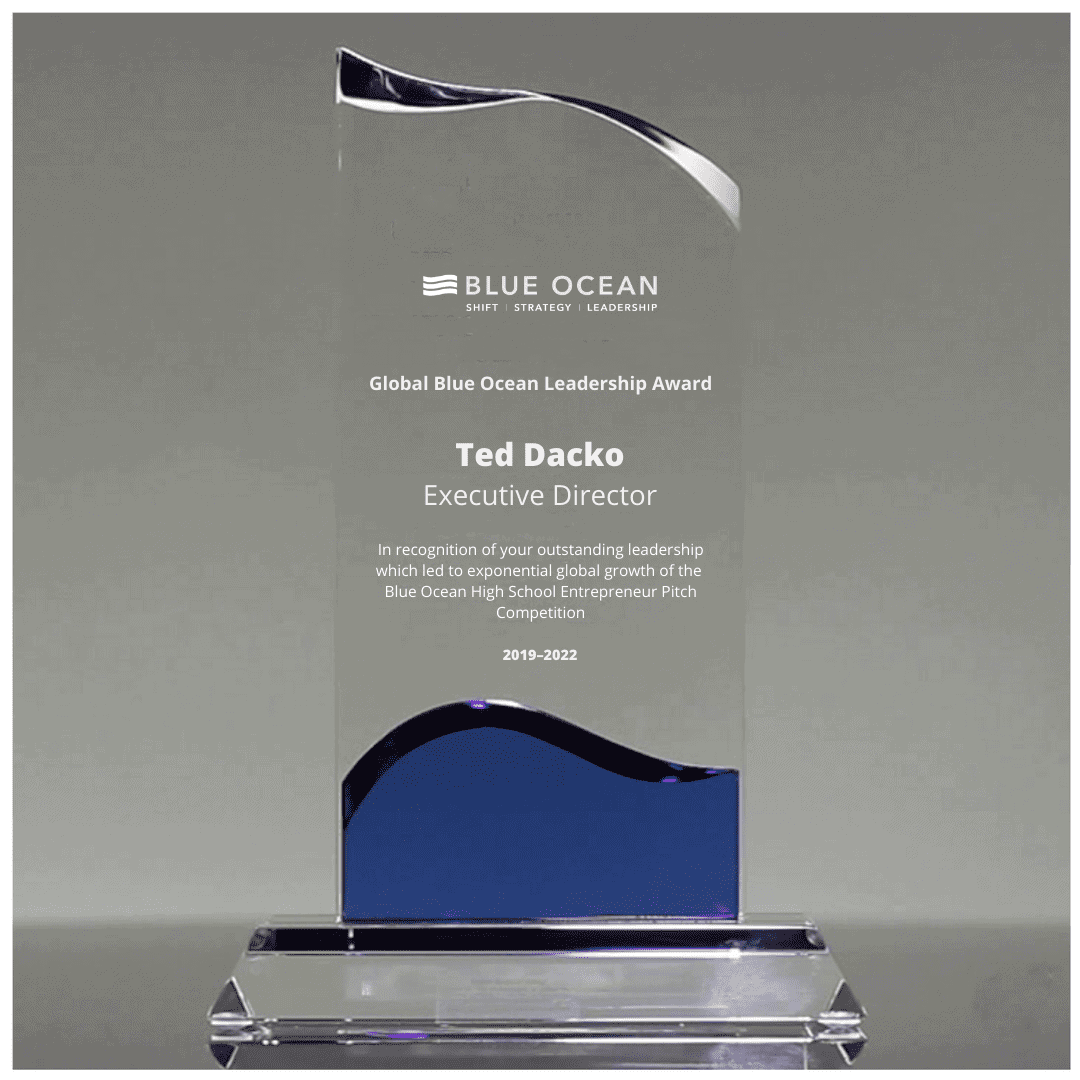
We are proud to announce that the first winner of the 2022 Global Blue Ocean Leadership Award is Ted Dacko, the Executive Director of the Blue Ocean High School Entrepreneur Pitch Competition.
Ted is a seven-time CEO, has over 45 years of entrepreneurial experience, and has been leading the Blue Ocean High School Entrepreneur Pitch Competition for the last 4 years. Under his outstanding leadership, the competition has grown to be the largest and most prestigious virtual pitch competition for high school students in the world. This year, over 2,000 students from over 60 countries registered for the competition, and more than 600 teams competed for the best blue ocean pitch.
As Ted steps down from his role as Executive Director of the competition, we sat down for an interview with him to learn about his experience leading the competition, how he’s helped inspire an entrepreneurial mindset in high school students, and his plans for the future.
The competition has grown from strength to strength. It seems there is a growing interest in entrepreneurship among young people. Why do you think that is?
Ted Dacko: Young people seem to like the idea of creating something from nothing. I think they tend to enjoy the idea of the independence of entrepreneurship, and don’t necessarily want to be locked into a large company framework. That’s the impression I get, especially when I speak to the students who arrive at the University of Michigan. Also, in many ways, it’s simpler and easier to create something in the digital world than it was before the internet. The barriers to entry are easier to overcome for entrepreneurs.
What have been the major highlights and achievements of the competition under your leadership?
TD: I’ve been doing this for four years and I think that probably there are four or five things that pop into my head. The competition has grown exponentially over the last four years, especially internationally. We’ve had registrations from students from over 60 countries this year, which was amazing to me.
The quality of the presentations has also grown dramatically in the last four years. If you look at what the students are submitting now versus a few years ago – the pitches are dramatically better. The participation by students from the top STEM schools has grown dramatically, too. I’ve liked that because we clearly want to promote the students who are into STEM.
The quality of the presentations has also grown dramatically in the last four years.
And last, but certainly not least, is the use of blue ocean concepts. By applying the blue ocean concepts and tools like the strategy canvas, buyer utility map, or three tiers of noncustomers, I’ve seen great improvement in students’ analyses, idea development, and presentations. This provides a solid structure for students to reach for blue oceans instead of incremental improvements in their ideas.
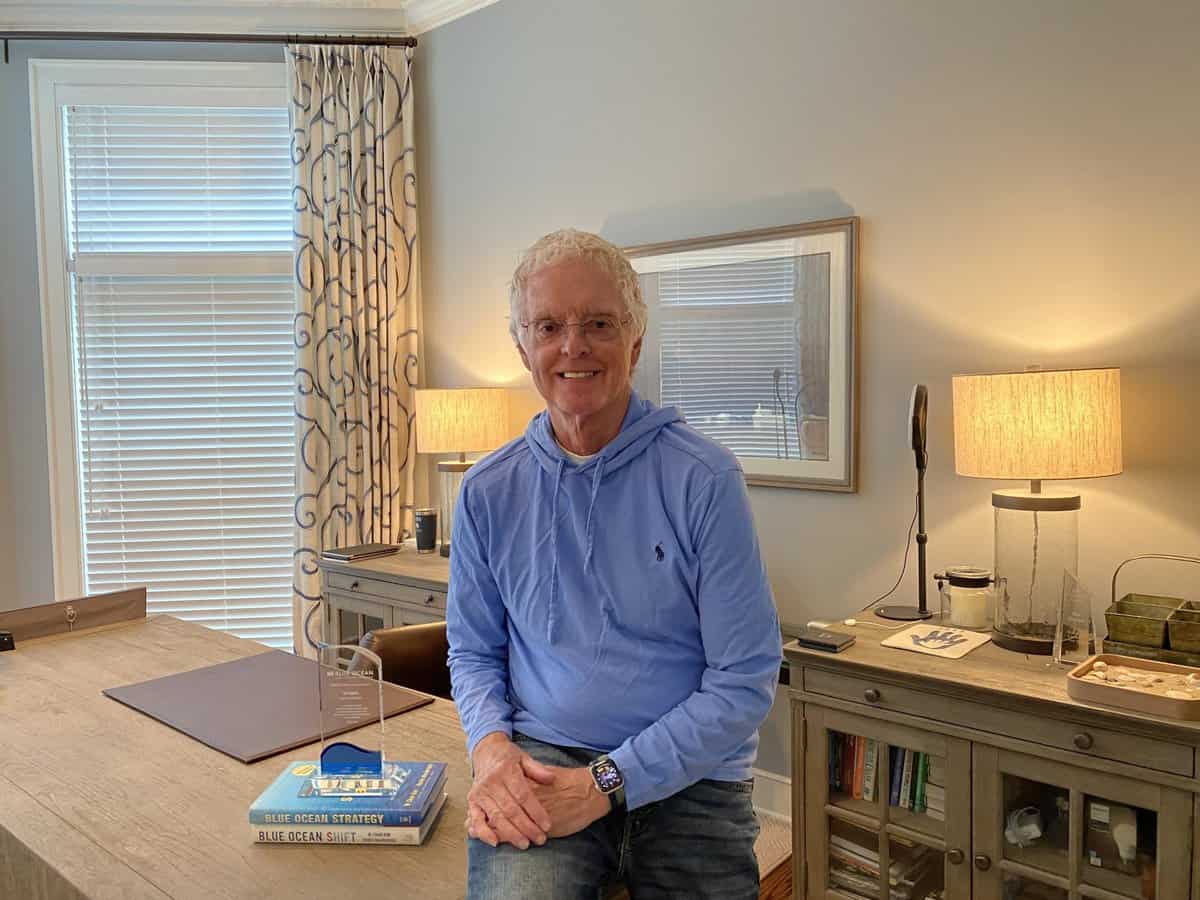
Ted Dacko has led the Blue Ocean Competition for the last 4 years.
Have you seen an increase in teachers’ participation? Are they getting more involved?
TD: Absolutely. More and more teachers are embedding the competition into the curriculum where participating in the competition becomes a live-action assignment and part of their grade. This gives students the chance to up their skills, potentially win a cash prize, and have an added item to add out their resume or college application, creating a win all around. We did a couple of initiatives in the last four years to get high schools involved. We did a lot of work with high school principals and used social media more effectively to get teachers involved, and the response had been great. Some of these teachers have 20 to 30 students in their classes who are all participating in the competition. We now award cash prizes to schools who have the best participation and the most students who make the Top 100.
Why should high school students enter the competition? What’s in it for them? And what makes this competition different from the rest?
TD: I think it’s the prestige and the fact that they can compete globally from their own homes and schools. They also get to learn a new important strategy concept. It’s one thing to enter a business pitch competition, but with the blue ocean competition, students get to learn a specific and highly sophisticated methodology, one that can be used throughout the rest of their lives.
Also, students are extremely motivated by the fact that they can get a certificate. Many of these students will use it as part of their college application process or even beyond that for potentially getting jobs in the future. It’s one of the main reasons why the competition has grown into the most prestigious high school pitch competition in the world.
Watch the winning pitches of the 2021-2022 Blue Ocean Competition
Why should the next generation be encouraged to pursue entrepreneurship, especially from a blue ocean point of view? What are the benefits for them and for society at large?
TD: I believe that the vast majority of the world’s problems are going to be solved by entrepreneurs who are passionate about some issue, rather than, let’s say, government or rules or regulations or things like that. History certainly bears that out. And so encouraging students to pursue ideas and teaching them how to execute those ideas, is incredibly important. That’s true of entrepreneurship in general, of course, so the advantages of encouraging entrepreneurship from a young age are many. And with blue ocean concepts and methodology in particular, we’re giving high school students practical skills and a systematic approach that will serve them well long into the future. Have an idea? Great, let’s talk about how you’re going to implement that idea and turn it into a real business. That’s where blue ocean thinking comes into play and I think that is important.
What were some of the common themes in this year’s competition? What do they tell us about the concerns and interests of young people around the world right now?
TD: This competition is not about selling t-shirts to one another or, or anything like that. A lot of these students are focusing on social issues and ways of solving big problems related to the environment, health, well-being, and so on. As I mentioned, I think these issues are going to be solved by entrepreneurs, not necessarily by government.
These issues are going to be solved by entrepreneurs, not necessarily by government.
These young people are showing that they care about social issues and are coming up with very creative ways to try to solve them. There have been some technology-related things as well but even these pitches are to do with solving some of the big problems we face today. If you look at the winners over the last couple of years, they have been clearly focused on social or environmental issues.
What advice would you give to teachers who want to develop entrepreneurship skills in their classes?
TD: I’d highlight a couple of points. First, use the materials that we provide because they are valuable, and they provide an easy and effective way to teach entrepreneurship and strategy concepts to young people. The free online course is a great introduction to the blue ocean concepts.
Since blue ocean strategy is taught in over 2000 colleges and universities, including in my courses at the University of Michigan, as a teacher, you’re giving your students a head start, not only on what they’re going to learn in college but what they’re going to need to learn for life as well.
It doesn’t take a lot of effort to incorporate this into the high school classroom. For example, look at what Ilene Littman has done at Ward Melville High School. She brings the competition into the curriculum and her students all have teams, work on their pitches together and then submit their final pitches to the competition. And it’s nice to be able to tie that classroom work into a global competition.
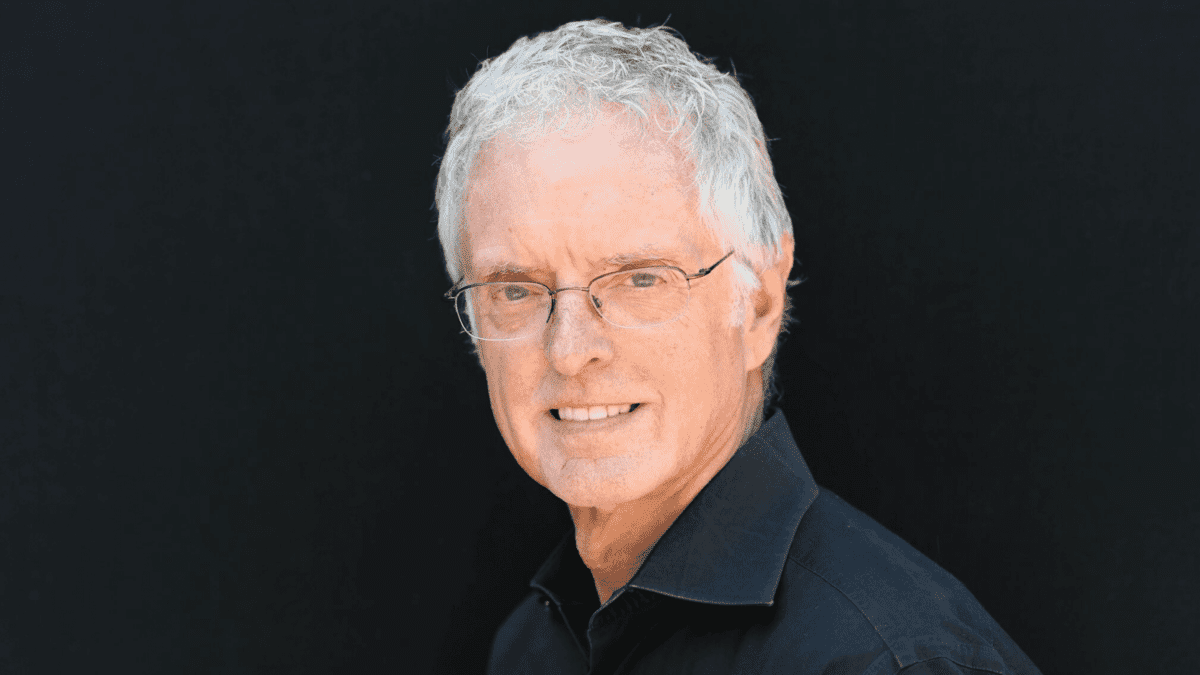
Ted is a seven-time CEO, and has over 45 years of entrepreneurial experience.
Finally, what have been your favorites or most rewarding moments over the competition over the years?
TD: I think seeing progress in the quality of the pitches has been a favorite moment. Also, the use of the blue ocean concepts in the pitches, and especially the geographic diversity of the pitches, including many of the winning pitches. In the last two years, the overall winners of the competition were not from within the United States. That has shown that we’ve truly turned this into a global competition and that these ideas can come from anywhere in the world. I’m really proud of that.
What’s next for you after the competition?
TD: Well, I’m going to continue to focus on the courses that I teach in the Center for Entrepreneurship at the University of Michigan. I also teach other courses for economic development organizations like Ann Arbor SPARK, and venture capital firms like Invest Detroit. I do guest speaking engagements around the country, primarily by Zoom these days, and I continue to consult and help particularly early-stage companies grow and implement blue ocean concepts. Those are the things that I like to do, and I’m going to continue to do that for as long as I can.
